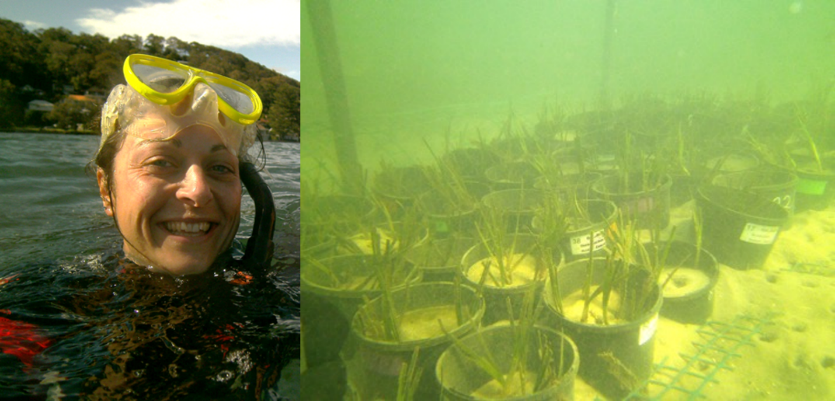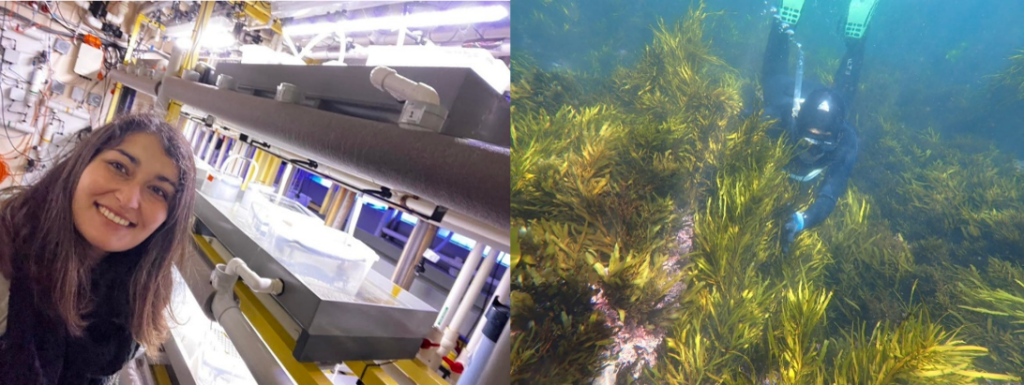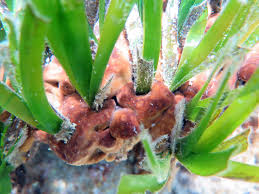The Marine Ecology and Microbiology (MEM) lab, led by A/Prof. Ziggy Marzinelli, focuses on understanding the processes that generate, maintain and impact marine ecosystems. We integrate the theory and experimental approach of marine ecology with molecular tools and microbiology to understand the role of host (e.g. genetics), microbes and environment in driving resilience of marine habitat-formers (e.g. kelp, seagrass) to natural and human disturbances. Such understanding is necessary to enhance conservation and restoration outcomes.
Examples of our research include:
Renske Jongen’s PhD project focuses on understanding the role of below-ground microbes in the performance and resilience of seagrasses under environmental stress using novel experiments methods that manipulate rhizosphere- and/or bulk sediment-associated microbial communities. This novel approach allows us to determine when and where below-ground microbes matter the most, providing crucial insights that have the potential to enhance seagrass restoration programmes and improve resilience of seagrass meadows under stress.

Catalina Musrri’s PhD project focuses on exploring options to improve crayweed (seaweed) forest restoration efficiency and scalability, determining effects of warming on different crayweed genotypes and developing a cryopreservation protocol for bio-banking, to secure crayweed genetic diversity into the future. This project aims to inform restoration and conservation via the development of future-proofing tools to improve the resilience of restored seaweeds to climate change stressors.


